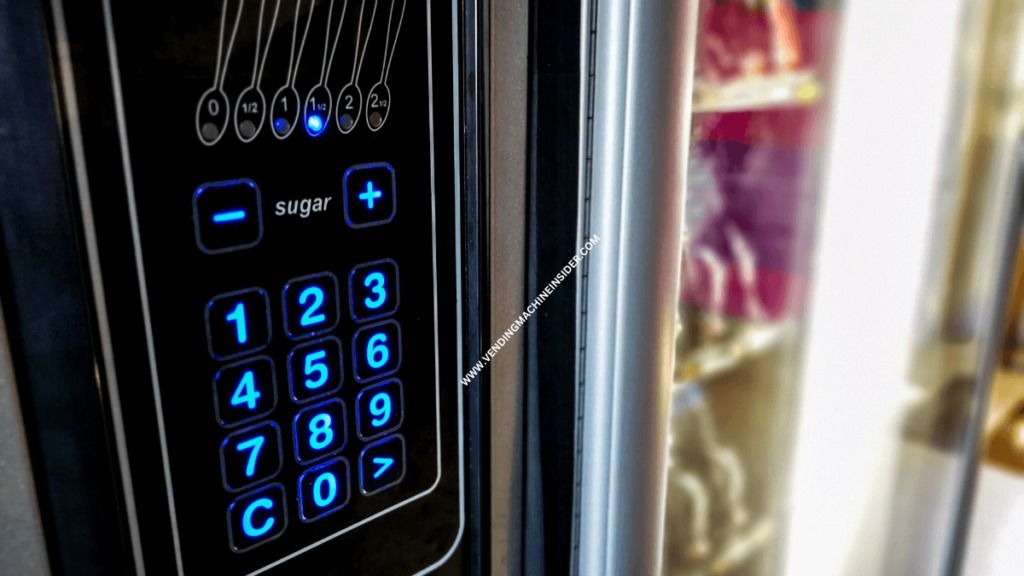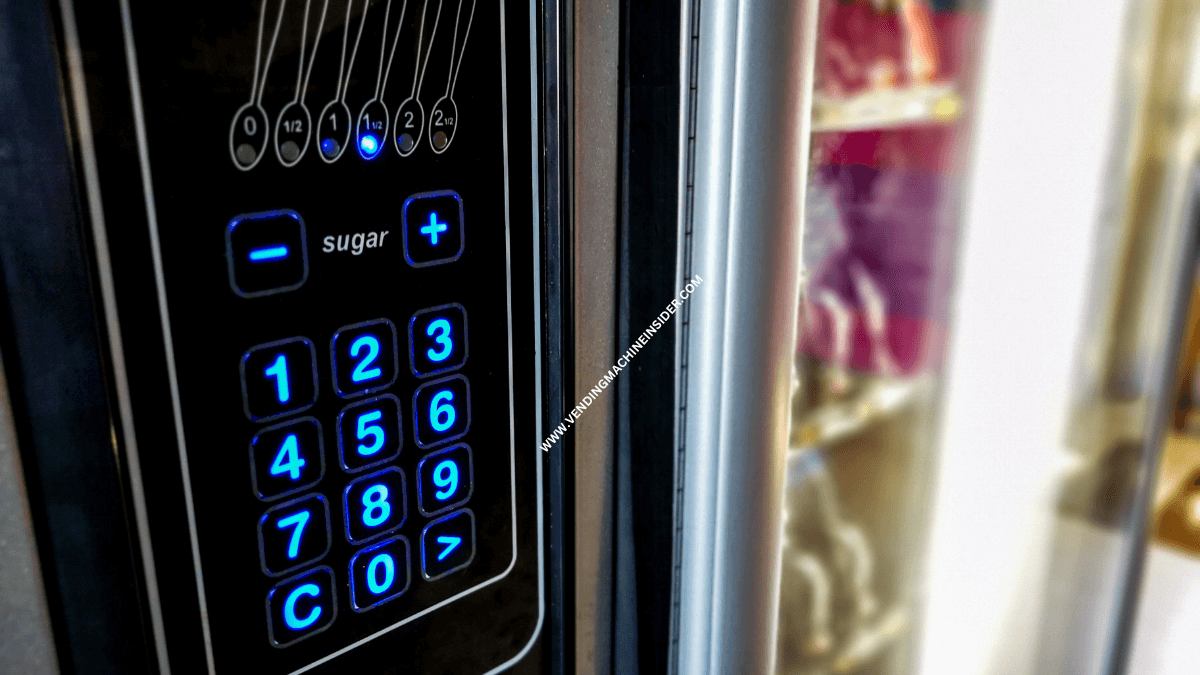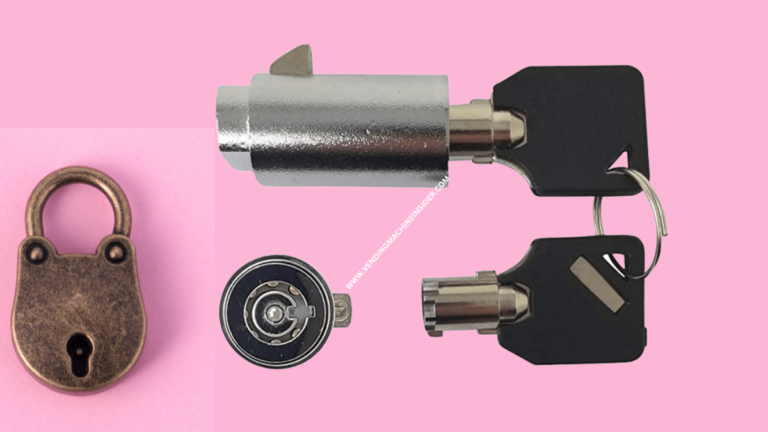How Does Cashless Vending Machines Work: Step-by-Step
Have you ever wanted a quick snack or drink but needed cash?
Cashless vending machines may be the solution, offering a convenient and contactless way to make purchases.

How do Cashless Vending Machines Work?
Cashless vending machines are a convenient and efficient way for customers to purchase without needing physical cash.
These machines use various payment methods, from credit and debit cards to mobile wallets and even biometric scanners.
1. Payment Methods
It accept various payment methods, including credit and debit cards, mobile wallets, and prepaid cards. Some devices even have biometric scanners allowing customers to pay using fingerprints or facial recognition.
The use of these payment methods allows for faster and more convenient transactions.
2. Payment Processing
Once a customer selects a product from the vending machine, the machine communicates with a payment processing system to process the payment.
The payment processing system then verifies the customer’s payment information and authorizes the transaction.
2. Inventory management
The machines use inventory management systems to track the products inside the machine.
These systems keep track of product availability, expiration dates, and restocking needs. When a product runs low or goes out of stock, the device sends an alert to the operator to restock the machine.
3. Data analysis
It collect data on customer behavior, including popular products, peak buying times, and preferred payment methods.
This data is used to optimize the machine’s inventory and marketing strategies to meet customers’ needs better.
4. Maintenance and support
To ensure the smooth operation of cashless vending machines, operators must regularly maintain and service the machines.
This includes cleaning and restocking the machines and resolving any technical issues that may arise. Operators also provide customer support for any payment or transaction issues.
It offer customers a convenient and secure way to purchase without needing physical cash.
With various payment methods, inventory management systems, and data analysis tools, these machines provide a seamless vending experience for both customers and operators.
READ: Why Won’t the Vending Machine Take my Card? 7 Reasons
Benefits of Cashless Vending Machines
Cashless vending machines offer several benefits, including increased convenience, improved security, and enhanced revenue opportunities.
Here are some of the benefits of using cashless vending machines:
1. Convenience
Cashless vending machines allow customers to purchase quickly and easily using credit/debit cards, mobile payment apps, or contactless payment methods.
This saves time and eliminates the need for customers to carry cash.
2. Security
They are more secure than traditional machines that accept cash. There is no risk of theft or vandalism, and operators don’t have to worry about handling large amounts of money.
3. Enhanced Revenue Opportunities
It enables operators to sell products at higher prices than traditional machines.
Users are more likely to make impulse purchases when they don’t have to worry about carrying cash.
Operators can also track sales data and adjust product offerings and pricing in real-time to maximize profits.
4. Improved Customer Experience
They offer customers a more modern and convenient experience, which can help attract and retain customers. Customers appreciate the ability to use their preferred payment method and the ease of use offered by these machines.
They are a wise investment for operators looking to improve their business operations and enhance the customer experience.
READ: Vending Machine Card Reader Not Working: SOLVED
Types of Payment Accepted by Cashless Vending Machines
Cashless vending machines offer a variety of payment options, including:
1. Credit and debit cards
Cashless vending machines have card readers that accept major credit and debit cards, allowing customers to purchase quickly.
2. Mobile payments
Many cashless vending machines are equipped with NFC technology, allowing customers to make payments using their mobile devices and digital wallets such as Apple Pay and Google Wallet.
3. Prepaid cards
Some vending machines accept prepaid cards or gift cards, allowing customers to pre-load funds onto the card and use it for purchases at the device.
4. QR code payments
Some vending machines also accept QR code payments, allowing customers to scan a code with their mobile device and make payments using a digital wallet app.
By accepting a wide range of payment options, it offer a convenient and seamless purchasing experience for customers.
Are cashless vending machines more secure than traditional vending machines?
Cashless vending machines are generally more secure than traditional ones.
They use encryption and tokenization technology to protect sensitive customer data and prevent fraud. Additionally, the machine does not need to hold cash, reducing the risk of theft or damage.
However, as with any technology, there is always a risk of security breaches, so it is essential for operators to regularly update and maintain their systems to ensure maximum security.
READ: How To Use Credit Card At Vending Machine: Step-By-Step Guide
Can cashless vending machines help reduce vandalism and theft?
Cashless vending machines have the potential to reduce vandalism and theft due to their advanced security measures. Since cash is not involved in transactions, thieves are less incentivized to target these machines.
They are equipped with security cameras, which can help deter criminals and aid in their identification if a theft or vandalism occurs.
The machines can also be programmed to lock or shut down in case of suspicious activity, further increasing their security.
It offers a safer and more secure vending experience for operators and consumers.
Are Cashless Vending machines more expensive to operate than Traditional Vending Machines?
Cashless vending machines may initially require a higher investment than traditional vending machines due to the cost of the technology involved.
However, in the long run, it can save money in several ways.
For example, they can reduce the need for cash handling, which can be time-consuming and expensive.
Additionally, they can help to prevent theft and vandalism, which can result in costly repairs and lost revenue.
It can provide valuable data on sales trends and customer preferences, allowing vending operators to optimize their inventory and pricing strategies.
While cashless vending machines may require a higher initial investment, they can provide significant cost savings and operational efficiencies in the long run.
Pros and Cons of Cashless Vending Machine
| Pros | Cons |
|---|---|
| Convenience for customers who prefer cashless payments | The higher initial cost to purchase and install cashless systems |
| Reduced risk of vandalism and theft | Maintenance and repair of cashless systems can be costly |
| Ability to track sales and inventory in real-time | Requires reliable internet connection |
| Less time and effort spent collecting and handling cash | Some customers may prefer to use cash |
| Opportunity to offer promotions and discounts | May not be feasible for small vending operators |
| Ability to accept multiple forms of payment, including credit/debit cards and mobile payments | Potential for technical issues and downtime |
Cashless vending machines offer a range of benefits over traditional vending devices, including increased security, greater convenience, and improved inventory management.
While some upfront costs may be associated with implementing cashless systems, these are often outweighed by the potential long-term savings and increased profits.
Also Read: How to Reset Vending Machine Card Reader? Step-by-Step Guide






